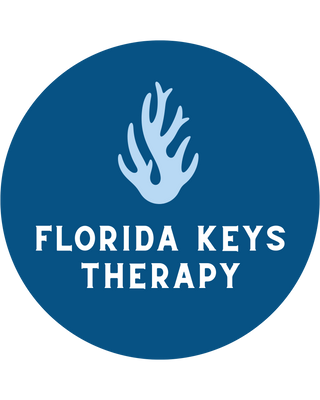Understanding Teen Therapy: A Pathway to Mental and Emotional Wellness

Adolescence is a critical period marked by emotional, social, and physical growth. While it can be a time of excitement and discovery, it can also bring challenges that are overwhelming for many teenagers. Teen therapy provides essential support to help young individuals navigate this transformative stage of life. In this article, we will explore what teen therapy is, how it can help adolescents, and the various benefits it offers for their overall mental and emotional wellness.
What is Teen Therapy?
Teen therapy is a specialized form of counseling designed to address the unique mental health needs of adolescents. Unlike adult therapy, which may focus on different issues, teen therapy recognizes the specific challenges faced by young individuals during their development. This form of therapy is tailored to help teens explore their emotions, improve their coping skills, and deal with various mental health concerns in a safe and supportive environment.
Teen therapy may include one-on-one sessions with a licensed therapist, family therapy, or group therapy. The goal is to create an open, non-judgmental space where teens can express themselves, learn healthy coping strategies, and develop emotional resilience.
Why is Teen Therapy Important?
The teenage years are filled with significant changes, both internally and externally. These changes often lead to heightened emotions, confusion, and challenges in relationships with family, friends, and peers. Without proper support, these feelings can lead to emotional distress, which may manifest as anxiety, depression, or even destructive behavior. Teen therapy provides essential tools to help adolescents navigate these emotions and make healthy choices.
1. Early Intervention for Mental Health Issues
Many mental health issues, such as anxiety, depression, and self-esteem struggles, begin to surface during adolescence. Early intervention through teen therapy can prevent these issues from escalating and potentially becoming lifelong challenges. By seeking therapy early, teens can learn strategies to cope with difficult emotions before they significantly impact their lives.
2. Building Healthy Coping Mechanisms
During therapy, teens are introduced to various coping techniques to manage stress, anxiety, and overwhelming emotions. These skills might include relaxation exercises, mindfulness practices, and cognitive-behavioral strategies to reframe negative thoughts. Learning how to manage stress in a healthy way is a key takeaway from teen therapy, as it empowers teens to face life’s challenges with confidence and resilience.
3. Promoting Emotional Growth and Resilience
Teen therapy helps adolescents develop emotional intelligence, which includes recognizing, understanding, and managing their emotions. By working with a therapist, teens can build emotional resilience, which is the ability to bounce back from adversity. This resilience helps them better cope with future challenges and fosters a sense of emotional maturity.
4. Improving Relationships
Adolescence is a time when teens are developing social skills and learning how to form deeper connections with others. Teen therapy can help improve communication and conflict resolution skills, which are essential for maintaining healthy relationships. Whether it’s with parents, friends, or romantic partners, therapy offers valuable tools for teens to strengthen their social connections.
Common Issues Addressed in Teen Therapy
Teen therapy can address a wide variety of emotional and behavioral challenges that are common among adolescents. These issues may include:
1. Anxiety and Stress
The pressures of school, extracurricular activities, and peer relationships can create stress for teens. Anxiety and stress can sometimes become overwhelming, leading to difficulties in daily functioning. Teen therapy provides a safe space to explore the sources of stress and learn effective strategies for managing anxiety.
2. Depression
Many teens experience feelings of sadness or hopelessness, which can lead to depression. Symptoms of depression may include low energy, irritability, changes in appetite or sleep patterns, and a lack of interest in activities. Teen therapy helps adolescents identify the causes of their depression and learn coping strategies to manage their feelings and improve their mental health.
3. Low Self-Esteem
Adolescents are often concerned with their body image and social acceptance. Low self-esteem can result from comparing oneself to others or feeling inadequate in various areas of life. Teen therapy can help improve self-worth by addressing negative self-talk and encouraging a positive outlook on oneself.
4. Family Conflicts
As teens strive for independence, conflicts with family members, especially parents, can arise. Teen therapy can help address communication breakdowns and provide strategies for resolving family conflicts. In some cases, family therapy may be recommended to improve overall family dynamics and foster mutual understanding.
5. Peer Pressure and Social Anxiety
Peer pressure is a common concern for teens, as they navigate social interactions and seek acceptance from their peers. Teen therapy helps teens build assertiveness and confidence, teaching them how to set healthy boundaries and resist negative influences from peers.
6. Risky Behaviors
Some teens may engage in risky behaviors, such as substance use, unsafe sexual practices, or other dangerous activities, as a way of coping with emotional pain or seeking attention. Teen therapy works to uncover the root causes of these behaviors and help teens develop healthier alternatives to manage their emotions.
How Teen Therapy Works
Teen therapy typically follows a structured approach to help teens address their concerns and develop emotional resilience. Here’s how the process generally works:
1. Building Trust
Establishing trust is crucial for successful therapy. The therapist works to create a safe, welcoming environment where the teen feels comfortable opening up about their feelings. This process may take some time, but it’s an essential first step in building a therapeutic relationship.
2. Exploring Emotions and Behaviors
The therapist helps the teen identify the issues they are struggling with and explore their emotions, thoughts, and behaviors. By discussing their experiences in a supportive setting, teens gain insight into the root causes of their challenges.
3. Setting Goals
Together, the therapist and teen set specific goals for therapy. These goals may be related to managing anxiety, improving communication skills, or addressing negative thought patterns. The therapist helps the teen create a plan for achieving these goals and monitors progress throughout the process.
4. Learning Coping Strategies
A major focus of teen therapy is teaching healthy coping strategies. Teens learn how to manage stress, regulate their emotions, and navigate social relationships in a positive way. These coping skills provide long-term benefits that help teens handle difficult situations throughout their lives.
5. Ongoing Evaluation and Support
As therapy progresses, the therapist regularly checks in to evaluate progress and adjust the treatment plan as needed. Teens may also receive guidance and encouragement to continue practicing new skills in their everyday lives.
The Benefits of Teen Therapy
Teen therapy offers numerous benefits for adolescents and their families:
1. Improved Mental Health
By addressing emotional struggles early, teen therapy helps prevent mental health challenges from becoming more severe. Teens who engage in therapy often experience significant improvements in their mental well-being.
2. Better Communication Skills
Therapy encourages open communication, both with the therapist and with others in the teen’s life. This leads to better communication skills and stronger relationships with family, friends, and peers.
3. Enhanced Self-Esteem
Teen therapy helps teens develop a stronger sense of self-worth and confidence, allowing them to navigate social situations with greater ease and accept themselves for who they are.
4. Emotional Resilience
Teens who participate in therapy gain emotional resilience, which equips them to cope with challenges in a healthy and constructive way. This resilience helps them thrive during difficult times.
Conclusion: Empowering Teens for a Brighter Future
Teen therapy plays a vital role in supporting adolescents as they navigate the complexities of growing up. By providing a safe and supportive space for self-exploration and growth, teen therapy helps young people build emotional resilience, improve their mental health, and develop healthier relationships. If your teen is struggling with emotional or behavioral challenges, seeking professional support through teen therapy can be a transformative step toward their overall well-being and success.






